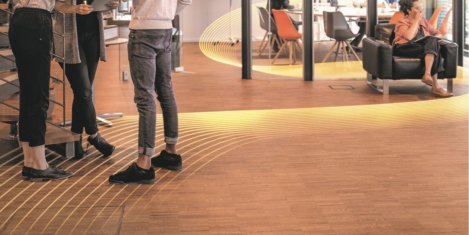To provide the best experiences, we use technologies like cookies to store and/or access device information. Consenting to these technologies will allow us to process data such as browsing behaviour or unique IDs on this site. Not consenting or withdrawing consent, may adversely affect certain features and functions.
The technical storage or access is strictly necessary for the legitimate purpose of enabling the use of a specific service explicitly requested by the subscriber or user, or for the sole purpose of carrying out the transmission of a communication over an electronic communications network.
The technical storage or access is necessary for the legitimate purpose of storing preferences that are not requested by the subscriber or user.
The technical storage or access that is used exclusively for statistical purposes.
The technical storage or access that is used exclusively for anonymous statistical purposes. Without a subpoena, voluntary compliance on the part of your Internet Service Provider, or additional records from a third party, information stored or retrieved for this purpose alone cannot usually be used to identify you.
The technical storage or access is required to create user profiles to send advertising, or to track the user on a website or across several websites for similar marketing purposes.
 As workplaces around the country prepare to adapt to the various social distancing and personal safety measures they will have to put in place, many will be wondering what the typical working day will start to look like. Some of the activities we take completely for granted like commuting, meal breaks and even talking to colleagues, will have to be carefully considered from now on as routines change to avoid any unnecessary human contact. More →
As workplaces around the country prepare to adapt to the various social distancing and personal safety measures they will have to put in place, many will be wondering what the typical working day will start to look like. Some of the activities we take completely for granted like commuting, meal breaks and even talking to colleagues, will have to be carefully considered from now on as routines change to avoid any unnecessary human contact. More →


































June 12, 2020
Building a culture of trust has never been more important
by Jonathan Richards • Comment, Workplace